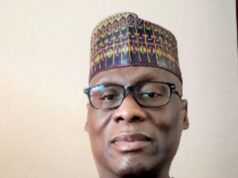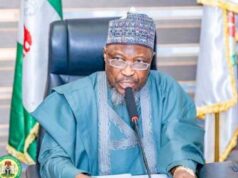 The question of whether Karl Marx was right or not in his contemplation that capitalism contains the seed of its own destruction is subject either way to the dialectics of conversation, logic and ramification, especially against the backdrop of a writ large summation that underpins the global expansionist tendency of the capitalist governance ideology.
The question of whether Karl Marx was right or not in his contemplation that capitalism contains the seed of its own destruction is subject either way to the dialectics of conversation, logic and ramification, especially against the backdrop of a writ large summation that underpins the global expansionist tendency of the capitalist governance ideology.
Whilst historical developments have, so far, confirmed the increasing domination of the ideological system, thus resolving the question in the negative, there is a profound sense in which it can be surmised that laissez-faire approach by operatives at the commanding heights of the capitalist system, which vitiates the elite consensus to gradually admit revolutionary leaders into its fold, can destabilize the polity and actuate the process of revolution, that will conversely answer the question in the positive.
Writing in a preface to “The Contribution to the Critique of Political Economy” Marx posited: “no social order ever disappears before all the productive forces for which there is room in it have been developed; and new higher relations of production never appear before the material conditions of their existence have matured in the womb of the old society itself. Therefore, mankind always sets itself only such tasks as it can solve; since looking at the matter more closely, we always find that the task itself arises only when the material conditions necessary for its solution already exist, or are at least in the process of formation.”
It is in the context of the analogy supra that the tension of the problematic demand by the new Peoples Democratic Party (nPDP) within the bigger and larger legacy party, the All Progressives Congress (APC), for fairness and justice in political accommodation and appointments, is hereby interrogated. The Yoruba have a proverb that says: “bi ina ko ba tan li ori, eje ki itan li eekan”, transliterated: “if lice are still in the hair on the head, blood stains will be a common feature on the finger nails.” The nPDP members are lice in the hair on APC’s head. The group constitutes, as it were, the potential seed of APC’s destruction if its capacity for good is not properly nurtured, managed and harvested for utilitarian political benefits.
Some leaders of the APC are more likely to disagree with this assessment. It is within their right to do so. There is no doubt that the proposition is contentious. Former governor of Nasarawa state and senator representing Nasarawa West senatorial zone, Abdullahi Adamu, believes that the nPDP is a shadow of its old self, shorn of weight, strength and gravitas. A clearer understanding of his position will most probably encourage supporters of President Buhari in the party to see the nPDP as no longer being a monolithic, cohesive, strong and single-minded group as it was when it staged the 2014 sensational pullout from the PDP to join in the formation of the APC.
As north central zonal coordinator of the Buhari campaign organisation, Adamu leads a critical bloc in the senate and in the party. He is also in a position to assess the membership of the resurrected nPDP and what those who are promoting it count for in President Buhari’s re-election bid. Perhaps, his assessment accounts for his consistent anti-nPDP pronouncements. He recently called on the APC leadership to ignore what he described as the antics of the group essentially as they were aimed at intimidating and blackmailing President Buhari.
But there seems to be a fresh direction, attitude and rapprochement in the offing. New National Chairman of the APC, Comrade Adams Aliyu Oshiomhole, in his acceptance speech after his emergence at the party’s national convention in Abuja said that the nPDP would be accommodated within the emergent party-government configuration. Oshiomhole spoke magisterially to the issue of hard work and reward being commensurate. He assured that his leadership would engage with all stakeholders for equitable rewards. That is the way to go in any political party that craves the enduring legacies of unity and amity.
Oshiomhole knew what he was talking about. The nPDP issue has lingered, rendering the party and the presidency tentative. The Chief John Odigie-Oyegun leadership, working in concert with the vice president, Professor Yemi Osinbajo, had already begun the process of engaging the group. However, there have been indications of lack of good faith (bona fides) by both sides. There has been arrogant posturing by both sides. Oshiomhole advised against arrogance in his speech. Whereas, what is needed is forgiveness; it is the understanding of the need to forgive, put the acrimonious past behind and forge a new common front on the basis of equitable political accommodation that can lead to the success of Oshiomhole’s engagement with the Kawu Baraje-led nPDP.
The new APC chairman, judging by his speech to the delegates, including President Buhari, and the APC as a political family, appeared committed. Since he would not want to preside over the disintegration or liquidation of the party under his leadership, one can reasonably surmise that his intentions going forward with the engagement are genuine. It is with great pains that his good faith would be discounted or faulted. This then leaves the nPDP as the beautiful bride that must be mollycoddled and pacified. It then means that the group should, in the present circumstance, bear the burden of questionable good faith.
Given the prejudices and negative sentiments that the leadership of the nPDP and its back-end sponsors suffer from as well as the problem of mutual distrust between them and the Buhari/APC leadership, the likely atmosphere that will prevail will be that of mutual suspicion and possible backstabbing. Can Oshiomhole moderate tempers and cause a shift of grounds for amicable resolution of the contending issues? It will take a mind reader to know what the stakeholders are contemplating as their final plans.
The strategic moves to halt the pullout of the nPDP by the Oshiomhole leadership require the assurance and good faith of the president. The president will need to support Oshiomhole, as he did for him to emerge as national chairman, to succeed in this critical endeavour. The success of the engagement will be salutary to his presidential re-election enterprise. Therefore, whatever the terms of the settlement are, good faith requires that both parties should show fidelity to them. It should not be a case of the president reneging once he has achieved his political and electoral objective.
And as for the nPDP, this process is delicate. The group needs prudence in decision taking. If it has confidence in the capacity of the new APC leadership to pull it through without reprisals, it may consider staying put in the APC and staking its destiny in the emerging topsy-turvy on the political terrain in the build-up to the 2019 general election, especially the presidential battle. Feelers from the APC indicate that Oshiomhole is sincere in his moves to engage with the nPDP. The concern is however with the presidency and the nPDP who may insert their wedges in the process and render it convoluted and complicated. If the process eventually falls through, it will not be that Oshiomhole did not try his best; it will then be that the other critical elements approached the reconciliation process with bad faith (mala fides). And that will be sad and counter-productive to APC’s electoral fortunes.
Ojeifo, an Abuja-based journalist, writes via ojwonderngr@yahoo.com






